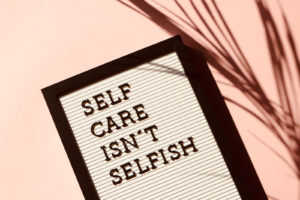Tired All the Time? Hidden Causes of Chronic Fatigue (with Recovery Tips)
Written by tyemedical on Apr 30th 2020
How long has it been? Weeks? Months? Years? Seriously, when did you last feel like yourself? If you’ve been battling chronic fatigue, even the simplest responsibilities drain your energy. It’s almost impossible to describe to someone who hasn’t experienced it. You might feel isolated or misunderstood, even by those in your inner circle.
Chronic fatigue comes in a variety of forms and varying degrees of severity. It’s not uncommon for extreme physical fatigue to affect your mental energy also. When this happens, your short-term memory seems to vanish, and you have difficulty focusing on simple tasks.
Before diving into some of the less obvious causes of chronic fatigue (and tips for recovery), let’s quickly address the most common culprit– sleep disorders or sleep disturbance.
Lack of sleep, regardless of the cause, will eventually lead to chronic mental and physical fatigue. If you think your extreme fatigue is related to sleep issues, check out our article, Feel Like the Walking Dead? Get Better Sleep with These 7 Tips.
Now, let’s take a closer look at chronic fatigue, unveil its underlying causes, and find ways to squash its debilitating effects.
What Exactly Is “Fatigue”?

Fatigue goes beyond “sleepiness” and is more like overwhelming exhaustion that you can’t shake off and often includes muscle weakness. Chronic fatigue drains your physical and mental energy, making routine activities challenging or even impossible. But unlike sleepiness, more quality rest doesn’t immediately banish fatigue, but over time it can help you heal. Additionally, good sleep hygiene and adequate rest prevent additional fatigue and sleepiness.
Even though sleepiness and fatigue are different, it’s possible to experience both at the same, depending on what underlying conditions may exist.
What’s Causing My Chronic Fatigue?
Extreme fatigue is a red flag warning that something isn’t right inside your body. In fact, ignoring the warning sign and pushing through can have unintended consequences – like fatigue that becomes debilitating and leaves your bedridden. But pinpointing the underlying condition(s) and taking proactive approach can bring much needed relief from feeling tired all the time.
Here are some common causes of chronic fatigue that are easily overlooked.
1. Sleep Apnea
Sleep apnea leaves you feeling unrested, sleepy, and physically and mentally exhausted regardless of how many hours you’re in bed. This is because breathing stops and starts repeatedly throughout the night. It’s caused by either throat muscles that relax during sleep, partially blocking the airway (obstructive sleep apnea), or by improper signals sent from the brain to the breathing muscles. The disruption in breathing throughout the night deprives the body of oxygen and causes numerous health problems, including increased blood pressure, heart problems, type 2 diabetes, and liver problems (nonalcoholic fatty liver disease).
Recovery Tips
If you snore loudly and suffer from chronic fatigue and daytime sleepiness, talk to your doctor about setting up a sleep study. When your apnea is properly treated with a C-Pap machine, your chronic fatigue symptoms will greatly improve or even disappear completely.
2. Stress, Anxiety, & Depression

If you’re tired all the time, try taking your emotional temperature. How is your stress level? Before you answer, “fine,” consider these stress and anxiety symptoms:
- Low energy, fatigue
- Insomnia
- Headaches
- Digestive problems (nausea, constipation, etc.)
- Tense muscles, aches, and pains
- Rapid heartbeat or chest pain
- Shallow breathing
- Frequent colds or infections
- Grinding teeth, tense jaw
- Racing thoughts
- Forgetfulness
- Constant worrying
- Trouble focusing
- Difficulty relaxing
- Easily frustrated
If you’ve lived with stress and anxiety long term, then these symptoms have probably become an integral part of your life. You might not even recognize them without paying careful attention. But stress (external sources like making deadlines) and anxiety (internal sources like worry or self-pressure) both sap your mind and body of vital energy and cause chronic fatigue.
Check out our article, Stress Management for Seniors: Tips for Improving Health and Wellbeing for practical information about managing daily stress.
It’s not uncommon for anxiety to lead to depression. Depression also triggers chronic fatigue and is fueled by sadness, anxiety, or hopelessness. A chronic depressive state affects your mind as well as your body, disrupting the neurotransmitters in your brain that handle alertness. This makes you feel drained of energy and sleepy in addition to the sleep problems depression typically causes.
Recovery Tips
If you’re suffering from chronic fatigue related to stress, anxiety, or depression, it’s important to talk with a therapist or counselor to help identify and uproot issues from your past or present) that could be affecting you today. You’ll learn how to recognize anxiety and depression feelings and ways to handle them in a healthy way. (Stifling or ignoring them isn’t the answer).
Additionally, try getting outside every day and add yoga to your daily activities. Yoga promotes deep breathing and focus that drive away stress, tension, and negativity, which boosts energy levels.
3. Prescription Medications
Fatigue or sleepiness is a side effect of many medications and is often overlooked as a cause of chronic fatigue. Even an increased dosage can trigger fatigue symptoms that didn’t previously exist.
Common medications that cause fatigue:
- Antidepressants
- Antianxiety medications
- Statins
- Blood pressure medications (antihypertensives)
- Steroids
- Antihistamines (allergy medications)
Recovery Tips
If a change in diet or lifestyle would allow you to safely stop taking these medications under your doctor’s supervision, then that would be the best answer. If not, ask about a similar medication that’s less likely to cause fatigue to this degree.
4. Hypothyroidism (Underactive Thyroid)
You’ve probably heard about this one, and if you’re a middle-aged woman, your doctor probably checks your TSH (Thyroid Stimulating Hormone) every year. Age increases risks of developing hypothyroidism, and the condition is most common in women over age 60.
An underactive thyroid produces less of the thyroid hormones your body needs to produce energy. So along with many other symptoms, you’ll experience extreme fatigue, especially as the undiagnosed problem progresses. (For more information, see our article, Is Your Thyroid Happy? How to Optimize Thyroid Function as You Age).
Recovery Tips
If your doctor isn’t already checking your TSH annually, ask her to start. Even if your numbers are normal now, in the next year or two, they might not be. It’s good to have a baseline for whatyournormal is.
If you’re suffering from chronic fatigue, and your doctor has been checking your TSH, ask her to add T3 and T4 tests to your annual labs. This will provide a more complete picture of your thyroid function and where it might be slipping.
If your doctor finds a thyroid condition, the appropriate medication will help dramatically with the chronic fatigue, but it could take a few months to enjoy the full effects of the medication.
5. Iron and B-12 Deficiencies
As we age, our bodies have greater difficulty absorbing nutrients through the digestive system. Senior adults often struggle to maintain proper iron and B-12, both critical to energy levels. Falling levels of these important nutrients often results in extreme fatigue.
Iron plays a major role in producing red blood cells (hemoglobin), which carry oxygen throughout your body. When you lack enough red blood cells to supply plenty of oxygen to your body’s cells, it’s called anemia or iron-deficiency anemia. Without oxygen, your body doesn’t have what it needs to maintain energy levels. This leaves you feeling weak, sluggish, tired, and unable to focus.
B-12 helps make red blood cells as well, and it also aids in the production of nerves and DNA. If you’re not taking in enough B-12 through your diet, or if your body isn’t absorbing it through your digestive system, then you become deficient and experience very serious chronic fatigue.
Recovery Tips
Ask your doctor to test both your iron and B-12 levels. If either of them is low, supplements will be recommended to give you the boost of nutrition your body needs. B-12 supplements are available in sublingual form, typically as a spray or dropper that dispenses the liquid vitamin under your tongue. This allows the vitamin to be absorbed directly into your blood stream, bypassing your digestive system entirely. It won’t take very long to bounce back after using the sublingual B-12, but it could take several weeks or months before you feel the effects of iron tablets. If your iron is severely low, your doctor might recommend intravenous iron (iron infusion).
6. Candida Overgrowth
Candia is one of many types of fungi that live in and on our bodies. It’s classified as a type of yeast that’s typically found in the mouth, intestines, and on skin in small amounts. Yeah, it’s gross to think about, but it’s not at all harmful or problematic when contained. Your body’s healthy bacteria usually keep candida in check, but when your good bacteria diminish, the yeast takes over. A prolonged overgrowth of intestinal yeast zaps your energy and may even cause chronic fatigue syndrome (more on that later).
Recovery Tips
Before talking to your doctor about the possibility of candida overgrowth as a cause of extreme fatigue, consider if you have any of these risk factors:
- Diet high in sugar and refined carbs
- Antibiotic use
- High stress
- Undiagnosed food sensitivities
- Use of oral contraceptives
- High alcohol intake
- Diabetes
- Weakened immune system
Your first line of defense is a healthier diet, incorporating probiotics, and stress reduction. But if your candida overgrowth is severe, you might require prescription medication like Nystatin tablets. Some people experience side effects, but it’s generally well tolerated. Most integrative medicine doctors have a lot of knowledge about this condition.
7. Chronic Fatigue Syndrome (CFS)

You might have heard of this “disorder,” and some years ago, it wasn’t taken seriously. Patients suffering from mysterious, chronic, debilitating fatigue were dismissed and told nothing was wrong. Things have changed dramatically since then, and now the CDC and other researchers are not only recognizing the illness but also conducting research to understand it better. The medical profession admits that what theydon’t knowfar outweighs what they understand about CFS. It’s recognized as a type of energy crisis in the body, but the specific causes are still hazy.
It’s also known as myalgic encephalomyelitis (ME) and sometimes, systemic exertion intolerance disease (SEID). The hallmark symptom of CFS – extreme fatigue – gets worse with physical activity. So, if you notice your fatigue is greater after a short walk, or a trip to the store, it could be an indication of CFS. The “crash” can come on up to 48 hours after activity.
Chronic fatigue symptoms accompanied by pain in various parts of the body is called fibromyalgia. The two illness are closely linked.
Recovery Tips
Talk to your doctor about your fatigue and ask her to help you rule out any other cause. There isn’t testing available for diagnosing CFS, which means it’s a process of elimination. Your doctor will want to rule out some of the other conditions and complications discussed in this article. Typically, doctors also want to rule out any neuro-muscular disorders that could be causing fatigue and muscle weakness.
If you’re diagnosed, find a physician who’s experienced with the illness, like an integrative medicine doctor. It’s helpful to have someone guide you through the healing process, which is possible but takes time.
Meanwhile, here are some additional tips to get you on the right track:
- Get at least 8 hours of sleep nightly
- Limit naps to one hour and not after 1 p.m.
- Switch to a vegan diet (or largely plant-based)
- Practice restorativeyoga/stretching exercises daily
- Practice deep breath during yoga or prayer/mediation
- Drastically limit your activity for now (see CDC guidelines)
- Reduce stress
- Cut out caffeine
- Eliminate sugar
- Boost nutrients by juicing veggies
- Build periods of rest or relaxation into your day
You’ll need to give yourself some tough love. If you don’t rest and take care of yourself now, the illness can progress and become more extreme. If you don’t listen to your body, you could end up in even worse condition. Take care of yourself, rest, de-stress, and eat nutritiously. You can nurse your body back to health, and in time, can slowly add more physical activity back into your life.

8. Lupus and Rheumatoid Arthritis (RA)
Both are autoimmune disorders that can make you feel tired all the time. When your body’s immune system becomes hyperactive and attacks healthy tissues in various parts of your body, it’s called lupus. But if your super-charged immune system begins attacking your joints (typically the hands and feet first), then it’s RA.
In both cases, your body is essentially fighting against itself, which leaves you with extreme fatigue.
Recovery Tips
If you have chronic fatigue symptoms and a have family history that includes autoimmune disorders of any type, ask your doctor to run a panel of autoimmune tests that include lupus and RA.
It’s also wise to make sure you’re eating for a healthy gut and following the above tips for candida overgrowth. Some medical professionals believe a gut imbalance eventually leads to autoimmune conditions, so it’s important to eat a nutrient-rich diet and take a daily probiotic. Reducing stress is also key for combating these illnesses and maintaining healthy gut bacteria. Yoga and self-care are great ways to beat back the stress!
9. Inflammatory Bowel Disease (IBD)
Many IBD sufferers feel tired all the time, and there are several reasons for this. The term IBD includes two different but related conditions – ulcerative colitis and Crohn’s disease. With both types, the digestive tract becomes inflamed as the immune system attacks a harmless virus, bacteria, or food in the gut. The inflammation and pain make you feel worn out and fatigued, especially if you experience ongoing or consecutive flare-ups of the illness. Additionally, many people with IBD have difficulty absorbing vitamins and minerals that causes low levels of iron, folic acid, and B-12, all of which are required for making red blood cells.
Recovery Tips
If you have any of the following symptoms in addition to chronic fatigue (even if they come and go) talk about them with your doctor:
- Diarrhea
- Abdominal pain and cramping
- Fever
- Reduced appetite
- Blood in stool
- Unintended weight loss
Blood tests, endoscopic procedures, and imaging are available to help with diagnosis. Traditional treatment options include medications and surgical procedures exist, but you’ll want to talk with your doctor about whether the benefits outweigh the risks. You might have more success with alternative approaches.
First, if you have IBD, you can rev your energy levels with regular exercise. Over time, increased physical activity will help you sleep better at night and increase daytime energy. Just be sure to choose the right type and amount of exercise for your body.
Second, avoiding flare-ups and boosting nutrition are key to squashing the chronic fatigue associated with ulcerative colitis or Crohn’s Disease. Be sure to follow specific dietary guidelines recommended for flare-ups and recovery periods. Additionally, consider home juicing vegetables and fruits to get energy-giving nutrition without the fiber. It’s still important to include cooked veggies as tolerated (to get some fiber).
If your symptoms are severe, or you’re experiencing prolonged weight loss, your doctor might also recommend nutritional support therapy to help your body absorb important nutrients that you can’t currently take in through the digestive tract.
Finally, consult with your doctor and try turmeric in supplement form(at least 2 grams of curcumin daily), because it has strong anti-inflammatory properties.

Sleep Confidently with LivDry Products
If you suffer from chronic fatigue and incontinence, you don’t want leaks waking you up at night. Your rest is crucial to building up your energy reserves.
Our LivDry products help you fall asleep without worries and without waking to the discomfort of ineffective incontinence product.
Browse our selection now and enjoy free shipping on orders over $20!

